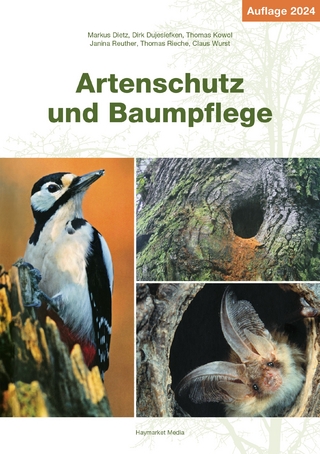Cultural Hybridity and the Environment
Springer Verlag, Singapore
978-981-287-322-4 (ISBN)
This book highlights the importance of diversity in overcoming issues of social and environmental degradation. It presents conceptual and practical strategies to celebrate local and Indigenous knowledge for improved community development and environmental management.
David Harvey has proclaimed, “The geography we make must be a peoples’ geography.” This clarion call challenges geographers around the world to consider the power and potential of geographic knowledge as the basis for social action – a call this book answers, providing readers the theoretical and conceptual tools needed to understand the social world and empowering them to mobilize social change.
The author uses empirical case studies of two environmental management and community development projects to document how knowledge generation is “essentially locally situated and socially derived.” In doing so she charts a path for moving beyond what Vandana Shiva so aptly describes as “monocultures of the mind.” The book argues that local and Indigenous knowledge must not be seen in opposition to scientific knowledge, as none of these knowledge traditions hold all the answers to localized socio-environmental problems. Rather, as the author explores through a set of processes and strategies to enable, support and celebrate ‘cultural hybridity’ at the local environmental governance scale, these respective knowledge systems can learn to speak to each other. Such dialogue has the potential to support more sustainable outcomes at multiple environmental governance locales.
This book will be of interest to everyone involved in environmental policy, planning or politics, and for those who want to make this planet a more sustainable and just place.
Kirsten Maclean is a human geographer who specialises in the use of participatory methodologies to investigate the role of diverse people, knowledge and values in regional natural and cultural resource governance and management. She engages in cross-cultural collaborative research with Indigenous and non-indigenous peoples, and uses qualitative participatory research methodologies (including visual methods) to guide her co-research projects. She enjoys working in diverse teams including scientists, representatives from government and non-government agencies, Indigenous and non-indigenous Australians, and multi-media experts. Much of her work has been conducted in remote and rural settings in Australia (the Wet Tropics, the Torres Strait, central Australia, Victoria, New South Wales) and Central America (Honduras and Costa Rica). She is sensitive to cultural protocol and has developed substantial research agreements with Aboriginal co-researchers. Kirsten Maclean currently works as a Research Scientist at the Commonwealth Scientific and Industrial Research Organisation in Brisbane Australia.
Dedication.- Preface.- Acknowledgements.- Table of Contents.- List of Figures.- List of Tables.- List of acronyms and abbreviations.- Chapter 1: Introduction.- 1.1: Chapter abstract.- 1.2: A framework for cultural hybridity.- 1.3: Epistemological tools.- 1.4: Empirical case studies show local dimensions of the wider complexities of ‘ecologically sustainable development’.- 1.4.1: Empirical case studies.- 1.5: Book structure.- 1.6: Reference list.- Part 1: The foundations for a new conceptual framework for cultural hybridity.- Chapter 2: An environmental and social crisis?.- 2.1: Chapter abstract.- 2.2: Is there a crisis?.- 2.3: A critique of contemporary development theory.- 2.4: The sustainable development era.- 2.5: Sustainable development as participation.- 2.6: Sustainable development as knowledge(s).- 2.7: Social and institutional learning for ecologically sustainable development.- 2.8: Environmental governance in Australia.- 2.9: Conclusion.- 2.10: Reference list.- Chapter 3: An applied peoples’ geography as the basis of the framework for cultural hybridity.- 3.1: Chapter abstract.- 3.2: Power is an entangled and complex force.- 3.3: A critique of knowledge generation.- 3.3.1: A foray into the history and philosophy of science.- 3.3.2: Knowledge is connected to place.- 3.3.3: Situated knowledges move through networks.- 3.4: Governance scale is a relational social construct.- 3.5: Colonial discourses of nature.- 3.6: Conclusion.- 3.7: Reference list.- Part 2: Edge politics-in-action.- Chapter 4: Political landscapes.- 4.1: Chapter abstract.- 4.2: Regional Natural Resource Management in Australia.- 4.3: Regionalism in Victoria and the Northern Territory.- 4.4: Case study 1: threatened species in the landscape.- 4.5: Case study 2: fire in the landscape.- 4.6: Together, let’s give our land a hand.- 4.6.1: The complexities of ‘together-ness’.- 4.6.2: Varieties of Regionalism.- 4.6.3: A diversity of hands for Natural Resource Management inAustralia.- 4.6.4: The view from the local.- 4.7: Conclusion.- 4.8: Reference list.- Chapter 5: Cultural landscapes.- 5.1: Chapter abstract.- 5.2: Case study narratives.- 5.3: Historical narratives.- 5.4: Contemporary realities.- 5.5: Difference and diversity across the landscape.- 5.6: Embedded powers across the landscape.- 5.7: Conclusion.- 5.8: Reference list.- Part 3: Local voices in the landscape.- Chapter 6: Spaces of environmental governance.- 6.1: Chapter abstract.- 6.2: Environmental governance is connected to place.- 6.3: The relational characteristics of environmental governance.- 6.4: The networked characteristics of environmental governance.- 6.5: The entangled characteristics of environmental governance.- 6.6: Conclusion.- 6.7: Reference list.- Chapter 7: Spaces of environmental management.- 7.1: Chapter abstract.- 7.2: Project success is synonymous with community involvement.- 7.3: Varieties of participation.- 7.4: Varieties of environmental management.- 7.5: Conclusion.- 7.6: Reference list.- Part 4: Knowledge networks across the landscape.- Chapter 8: Politics of knowledge.- 8.1: Chapter abstract.- 8.2: The power of place-based knowledge.- 8.3: Local community knowledge encompasses diverse knowledge cultures.- 8.4: Local community knowledge determines the success of environmental management projects.- 8.5: Conclusion.- 8.6: Reference list.- Chapter 9: Varieties of local knowledge.- 9.1: Chapter abstract.- 9.2: The potential of local community knowledge.- 9.3: Place-based characteristics of government knowledge.- 9.4: Knowledge cultures active in local environmental management and community development projects.- 9.5: Celebrating the limitations of local knowledge.- 9.6: The dangers of knowledge dichotomies.- 9.7: Conclusion.- 9.8: Reference list.- Part 5: Strategies for cultural hybridity.- Chapter 10: Practising cultural hybridity for the third space.- 10.1: Chapter abstract.- 10.2: Processes for an applied cultural hybridity.- 10.3: Practising anapplied peoples’ geography for cultural hybridity.- 10.3.1: Case study 1: principles for protecting and conserving threatened species habitat in Victoria.- 10.3.2: Case study 2: principles for managing fire in the southern Tanami, Northern Territory.- 10.4: Conceptualising processes for cultural hybridity.- 10.5: Creating spaces for cultural hybridity.- 10.6: Conclusion.- 10.7: Reference list.- Chapter 11: Working together to better manage country.- 11.1: Chapter abstract.- 11.2: Conceptual strategies for cultural hybridity.- 11.3: Practical strategies for cultural hyrbridity.- 11.3.1: Imagining formal institutions for social action.-11.3.2: Imagining projects for social action.- 11.3.3: Imagining the self as an arena for social action.-11.4: Reference list.- Glossary and Terms.
| Zusatzinfo | 10 Illustrations, color; 8 Illustrations, black and white; XIX, 215 p. 18 illus., 10 illus. in color. |
|---|---|
| Verlagsort | Singapore |
| Sprache | englisch |
| Maße | 155 x 235 mm |
| Themenwelt | Naturwissenschaften ► Biologie ► Ökologie / Naturschutz |
| Naturwissenschaften ► Geowissenschaften ► Geografie / Kartografie | |
| Sozialwissenschaften ► Ethnologie | |
| Sozialwissenschaften ► Soziologie | |
| ISBN-10 | 981-287-322-8 / 9812873228 |
| ISBN-13 | 978-981-287-322-4 / 9789812873224 |
| Zustand | Neuware |
| Haben Sie eine Frage zum Produkt? |
aus dem Bereich




